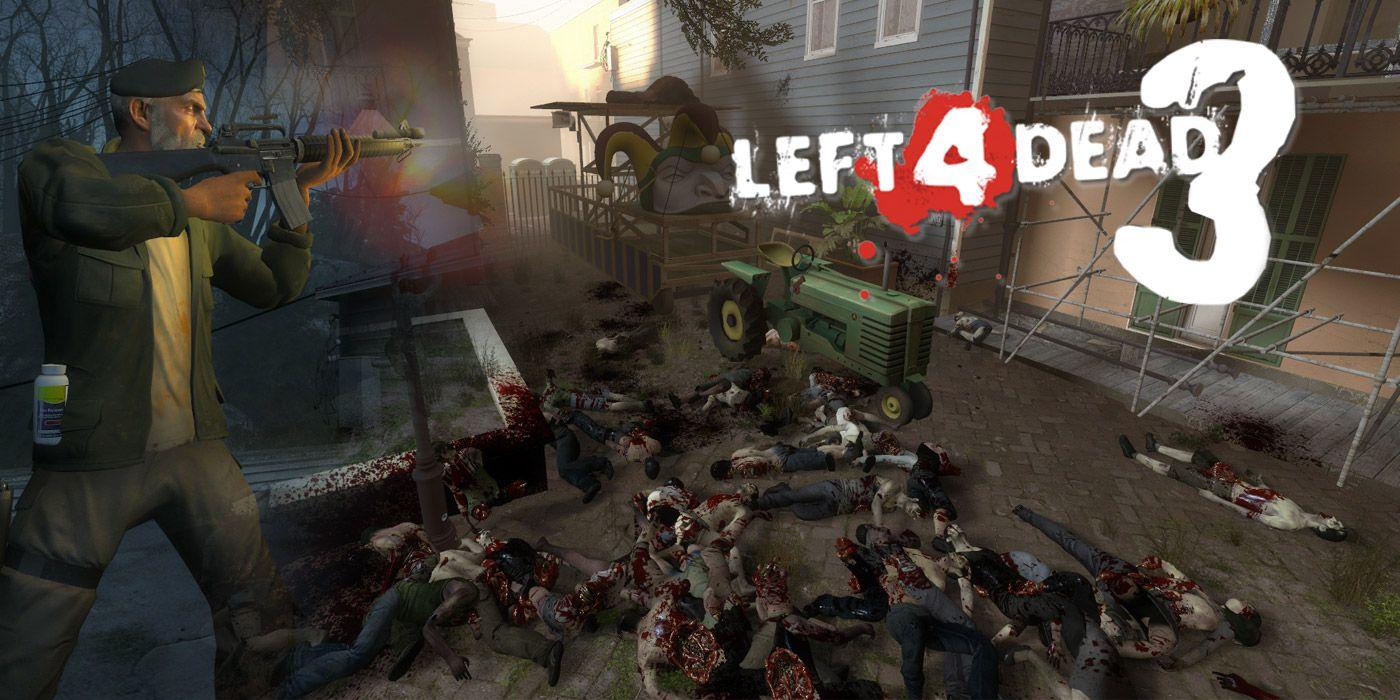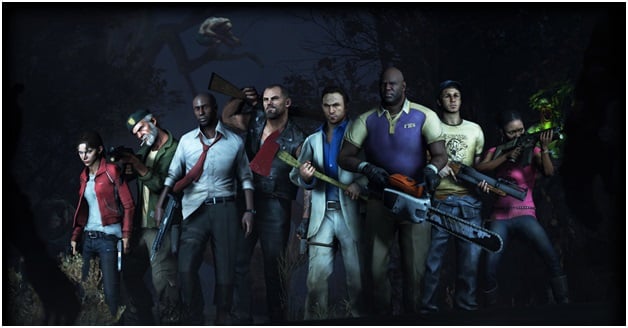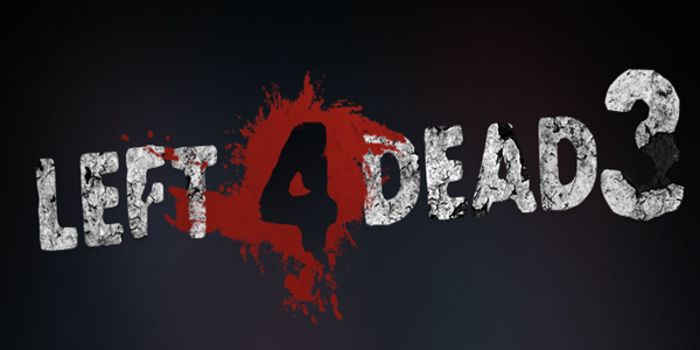The gaming world has been eagerly anticipating the third installment of the iconic Left 4 Dead franchise for years, but alas, it remains an elusive dream. The original Left 4 Dead, released in 2008, and its sequel, Left 4 Dead 2, which followed in 2009, captivated players with their intense cooperative zombie-slaying action, dynamic environments, and unforgettable characters. The franchise’s unique blend of heart-pounding gameplay, compelling storytelling, and the thrill of facing the undead horde alongside trusted friends made it a beloved institution in the gaming community.
The Demand for Left 4 Dead 3

The demand for a third installment of the Left 4 Dead series has never waned. Fans have been clamoring for a new chapter, eager to dive back into the apocalyptic world and face the challenges of a fresh outbreak. The game’s replayability, with its procedurally generated levels and dynamic enemy placements, has kept players enthralled, constantly seeking new experiences and challenges.
You are watching: Left 4 Dead 3: The Elusive Sequel We All Crave
The Legacy of Left 4 Dead
The original Left 4 Dead was a groundbreaking title that revolutionized the cooperative gameplay genre. Its innovative AI Director system, which dynamically adjusted the difficulty and enemy spawns based on players’ performance, created a unique and thrilling experience that kept players on their toes. The game’s four-player co-op mode, where players had to work together to survive the onslaught of the infected, fostered a sense of camaraderie and teamwork that was unparalleled.
The Advancements of Left 4 Dead 2
The sequel, Left 4 Dead 2, built upon the success of the first game, introducing new weapons, characters, and environments. The game’s enhanced graphics, refined gameplay mechanics, and the addition of melee combat options made it an even more immersive and engaging experience. The introduction of new special infected, such as the Charger and the Jockey, added new challenges and strategic considerations for players to navigate.
The Unfulfilled Promises
Despite the overwhelming popularity of the Left 4 Dead franchise, fans have been left disappointed by the lack of progress on a third installment. Valve, the developer behind the series, has remained tight-lipped about the possibility of a new game, leaving the community to speculate and wonder about the future of the franchise.
The Potential of Left 4 Dead 3

The potential for a Left 4 Dead 3 is immense, with the opportunity to build upon the foundations laid by the previous games and take the franchise to new heights. With advancements in technology, the development team could create even more immersive and visually stunning environments, further enhancing the sense of being trapped in a zombie apocalypse.
Expanded Narrative and Storytelling
One aspect that could be significantly improved in Left 4 Dead 3 is the narrative and storytelling. While the previous games provided a solid foundation for the story, there is room for a more nuanced and engaging plot that delves deeper into the characters’ motivations, their personal struggles, and the broader implications of the zombie outbreak.
Innovative Gameplay Mechanics
The Left 4 Dead franchise is renowned for its innovative gameplay mechanics, and a third installment could push the boundaries even further. Incorporating new gameplay elements, such as dynamic weather systems, environmental hazards, and advanced AI behaviors, could create an even more unpredictable and challenging experience for players.
Expanded Cooperative and Competitive Modes
The cooperative gameplay has always been a hallmark of the Left 4 Dead series, and a third installment could build upon this foundation by introducing new modes and features that encourage even greater teamwork and coordination. Additionally, the introduction of more robust competitive modes, where teams of players face off against each other, could add an exciting new dimension to the gameplay.
Seamless Integration of Single-Player and Multiplayer
One intriguing possibility for Left 4 Dead 3 could be the seamless integration of single-player and multiplayer experiences, as seen in Arkane’s lost game, “The Crossing.” Imagine a campaign where the actions of real-world players directly impact the progression and challenges faced by the main protagonist, creating a dynamic and unpredictable narrative that evolves based on the community’s collective efforts.
Lessons Learned from “The Crossing”

The story of Arkane’s lost game, “The Crossing,” provides valuable insights into the challenges and opportunities that could arise in the development of Left 4 Dead 3.
The Crossing: A Revolutionary Concept
“The Crossing” was envisioned as a groundbreaking game that aimed to combine single-player and multiplayer experiences in a unique way. Set in a dystopia-utopia scenario in Paris, the game featured a contrasting world where players could assist the main campaign player in battles, engage in strategic multiplayer against the campaign player, and connect via a dedicated matchmaking service.
The Innovative Mechanics
The key innovation of “The Crossing” was the integration of real-world players as AI enemies within the campaign’s linear narrative. This concept allowed for a dynamic and unpredictable experience, where the actions of other players could directly impact the protagonist’s journey and the challenges they faced.
| Feature | Description |
|---|---|
| Integrated Single-Player and Multiplayer | The game seamlessly blended the single-player campaign with multiplayer elements, allowing players to assist or compete against the main protagonist. |
| Real-World Player Integration | The game utilized real-world players as AI-controlled enemies within the campaign, creating a constantly evolving and unpredictable experience. |
| Dedicated Matchmaking Service | “The Crossing” featured a dedicated matchmaking service that facilitated the integration of real-world players into the campaign. |
The Challenges and Setbacks
Despite the innovative concept, “The Crossing” faced significant challenges during its development. Arkane’s negotiations with publishers were hindered by a lack of faith in the game’s matchmaking system, high development costs, and the absence of PlayStation 3 support. After six months of negotiations with a publisher demanding unreasonable terms, Arkane ultimately decided to walk away from the project, despite their passion for it.
The Impact on Arkane’s Design Philosophy
See more : The Threshold Coin: Unlocking the Future of Decentralized Applications
The experience of “The Crossing” had a profound impact on Arkane’s design philosophy, shaping the development of their subsequent successful games, such as Dishonored and Prey. The lessons learned from this project likely influenced their approach to crafting immersive, player-driven narratives and exploring innovative gameplay mechanics.
The Potential Impact of Left 4 Dead 3
The introduction of Left 4 Dead 3 could have a significant impact on the gaming industry, reviving the cooperative zombie-survival genre and introducing new standards for player-driven narratives and dynamic gameplay.
Reviving the Cooperative Zombie-Survival Genre
The Left 4 Dead franchise has been a cornerstone of the cooperative zombie-survival genre, and the release of a third installment could reignite the interest and enthusiasm of both longstanding fans and new players. The opportunity to once again team up with friends and face the undead horde in a fresh and engaging setting could breathe new life into the genre.
Advancing Player-Driven Narratives
Drawing inspiration from the innovative concept of “The Crossing,” Left 4 Dead 3 could pioneer a new era of player-driven narratives, where the actions and choices of the community directly influence the progression and outcomes of the campaign. This level of interactive storytelling could set a new standard for the industry, blurring the lines between single-player and multiplayer experiences.
Driving Technological and Gameplay Innovations
The development of Left 4 Dead 3 would likely spur technological and gameplay innovations that could have a ripple effect across the industry. Improvements in areas such as dynamic AI systems, environmental interactions, and seamless multiplayer integration could inspire other developers to push the boundaries of what’s possible in cooperative and competitive gaming experiences.
Rekindling the Passion of the Gaming Community
The release of Left 4 Dead 3 has the potential to reignite the passion and enthusiasm of the gaming community, who have long been clamoring for a new installment in the franchise. The anticipation and excitement surrounding the game’s potential could unite players, fostering a sense of community and shared experiences that transcends traditional gaming boundaries.
Conclusion
The absence of a third installment in the Left 4 Dead franchise has left a void in the hearts of many gamers. The potential for Left 4 Dead 3 to revive the cooperative zombie-survival genre, advance player-driven narratives, and drive technological and gameplay innovations is undeniable. While the challenges faced by Arkane’s “The Crossing” serve as a cautionary tale, the lessons learned from that experience can inform the development of a successful Left 4 Dead 3 title.
Ultimately, the gaming community remains hopeful that Valve, or another dedicated development team, will heed the call and bring the beloved Left 4 Dead franchise back to life, delivering an experience that exceeds the high expectations set by its predecessors. The potential for Left 4 Dead 3 to captivate players, push the boundaries of interactive storytelling, and solidify its place as a gaming icon is palpable, and the wait for its arrival continues.
Source: https://us.congthucvatly.com
Category: News



